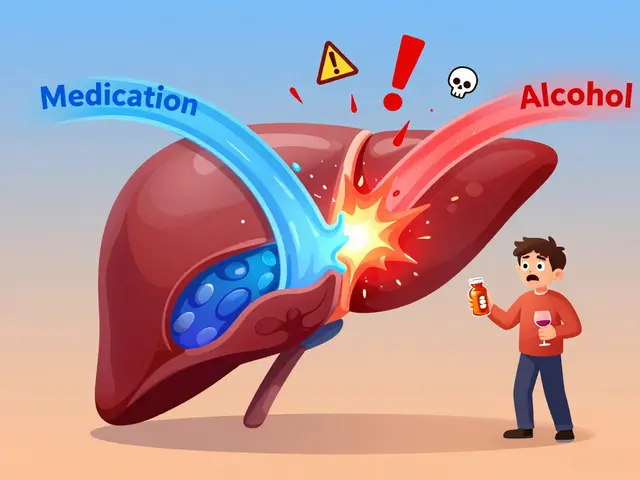Introduction to Trazodone and Drug Testing
As a blogger who is passionate about drug testing and its implications, I find it essential to explore the many facets of various substances and their detection in drug tests. One such substance is Trazodone, a widely prescribed antidepressant medication. In this article, we will delve into the nitty-gritty of Trazodone and drug testing, and answer the burning question: Will it show up in a drug test?
Understanding Trazodone: What is it?
Trazodone is a prescription medication that belongs to a class of drugs known as serotonin modulators. It is primarily used to treat major depressive disorder and other types of depression, as well as anxiety and insomnia in some cases. Trazodone works by increasing the levels of serotonin in the brain, which is a neurotransmitter responsible for regulating mood, sleep, and other vital functions. By doing so, it helps alleviate the symptoms of depression and anxiety, and promotes a sense of well-being.
Drug Testing: What Substances are Typically Tested For?
Drug tests are designed to detect the presence of specific substances in an individual's system. These substances typically include illicit drugs, prescription medications, and other psychoactive compounds that may impair a person's ability to function or pose a risk to public safety. Common drug tests screen for substances such as:
- Marijuana (THC)
- Cocaine
- Opiates (e.g., morphine, codeine, heroin)
- Amphetamines (e.g., methamphetamine, MDMA)
- Phencyclidine (PCP)
- Barbiturates
- Benzodiazepines
It is important to note that the specific drugs tested for may vary depending on the type of drug test and the purpose of the test (e.g., employment, legal, or medical reasons).
Trazodone's Potential for False Positives
While Trazodone is not typically tested for in standard drug tests, there have been reports of the medication causing false positive results for certain substances. In some cases, Trazodone has been known to trigger a false positive for amphetamines, methadone, or phencyclidine (PCP) due to its chemical structure and the way it is metabolized by the body. This can be particularly concerning for individuals who are required to undergo drug testing for work, legal, or medical purposes and may lead to unnecessary stress and complications.
How to Prevent False Positives with Trazodone
If you are taking Trazodone and are concerned about the potential for a false positive on a drug test, there are steps you can take to minimize this risk. Here are some suggestions:
- Inform the testing facility of your Trazodone prescription prior to the test. This can help them interpret the results more accurately and be aware of the potential for a false positive.
- Request a more specific drug test, such as a gas chromatography-mass spectrometry (GC-MS) test, which can provide more accurate results and eliminate the risk of false positives.
- Keep a copy of your Trazodone prescription and any documentation related to your medical condition for which you are taking the medication. This can be useful in case you need to provide evidence of your prescription to an employer, legal authority, or medical professional.
By taking these precautions, you can reduce the likelihood of a false positive result and ensure that your Trazodone use does not lead to any unwarranted consequences.
What to Do If You Receive a False Positive Result
In the event that you receive a false positive result on a drug test while taking Trazodone, it is crucial to act quickly and advocate for yourself. Here are some steps to take:
- Contact the testing facility and inform them of your Trazodone prescription, as well as any other medications or supplements you may be taking. This information may help them reevaluate the test results and determine if a false positive occurred.
- Request a retest, preferably using a more accurate testing method such as gas chromatography-mass spectrometry (GC-MS). This can help confirm the presence or absence of the substance in question and provide more reliable results.
- Provide documentation of your Trazodone prescription and any relevant medical records to support your claim of a false positive. This may include letters from your doctor, pharmacy records, or other evidence that demonstrates your legitimate use of the medication.
- Consult with a lawyer or legal advisor if necessary, particularly if the false positive result has led to legal or employment-related consequences. They can help you navigate the legal system and protect your rights.
By taking these steps, you can help ensure that the false positive result is properly addressed and does not negatively impact your life.
Conclusion: Will Trazodone Show Up on a Drug Test?
In summary, Trazodone is not typically tested for in standard drug tests and is unlikely to show up as a positive result for the medication itself. However, there is a potential for Trazodone to cause false positive results for certain substances, such as amphetamines, methadone, or PCP. To minimize this risk, it is important to inform the testing facility of your Trazodone prescription, request more specific testing methods if necessary, and be prepared to provide documentation to support your legitimate use of the medication. By taking these precautions, you can help ensure that your Trazodone use does not lead to any unwarranted complications with drug testing.



Samantha Vondrum on 6 May 2023, AT 07:12 AM
Thank you for shedding light on a nuanced topic such as Trazodone's interaction with drug screens 😊. It is essential for patients to understand both the therapeutic benefits and the potential for false‑positive results. Clear communication with testing facilities can prevent unnecessary complications, and documenting prescriptions is a prudent step. I appreciate the thoroughness of this guide.